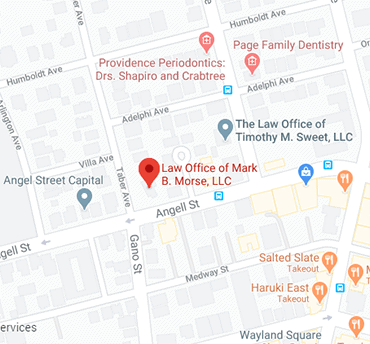Attorney Mark Morse’s Experience In Handling ERISA Related Claims
 In this article, you will learn:
In this article, you will learn:
- How ERISA violations are committed
- When ERISA and personal injury claims can overlap
- How ERISA liens can impact you
I became involved in ERISA in a rather unusual fashion. Most of the claims that I now handle which involve ERISA (Employees Retirement Insurance Security Act), involve denial of long-term disability benefits pursuant to a long-term disability insurance contract. There are also some claims that fall under ERISA involving health insurance, denial of benefits under a health insurance policy. I have had some of those claims, but not many. There are other claims that involve the miscalculation of a retirement fund, and I’ve had those sorts of claims, but not nearly as many as the long term https://embi.com.ua disability claims. So, it’s in that fashion that I first became involved in ERISA, when a gentleman had received a retirement from his business and thought that the manner in which his employer calculated the retirement was incorrect. He asked me to look into it and we did.
We brought a claim on his behalf that the calculations were Incorrect and not in conformity with the language of the plan that set forth the manner in which all these payments are to be made. That was my introduction to ERISA, and I’ve been involved in these sort of claims ever since. That initial claim took place in the mid-90s, when that case was first presented to me.
ERISA Violation Explained
The most predominant type of claims that cause litigation are twofold. There are many health insurance claims now that will arise under ERISA. Generally, a claim will arise under ERISA if it’s involving an employer-sponsored plan. So, that has a rather broad meaning, and the employer does not have to necessarily be paying for your benefits under the plan. He just has to have it sponsored through his employment. If it’s a benefit of your employment, and the employer is a private non-religious organization, or non-municipal organization, then more than likely, it is going to be governed under ERISA.
How And When ERISA Claims And Personal Injury Claims Overlap
In the long-term disability context, they overlap in the sense that a person is deemed to be disabled in order to collect disability benefits under his long-term disability contract. So, the question of whether the person is disabled necessarily evolves into a medical issue, and whether the medical evidence supports that disability. It also arises in another context more familiar to attorneys than it would be to the average person, which is a collection of proceeds that are paid to the injured party, and the reimbursement that must be made to the ERISA provider if a claim is resolved with the at fault party. So, in other words, if a person has a first-party health insurance plan, such as Blue Cross, and the Blue Cross plan is administered through the employer, then it is quite likely that Blue Cross plan is going to be governed by ERISA. Now, if a person is injured in a motor vehicle accident and recovers money from the other driver responsible for his injuries, the Blue Cross plan oftentimes is going to seek reimbursement of what they paid to you in health insurance benefits.
If they paid for your hospital bill or doctor’s visits, they’re going to want to get paid back, which has evolved into a whole body of law regarding the amount that they are entitled to, the manner in which they get paid back, from whom can they seek the funds, and that has become a large part of all personal injury practitioners’ cases in a personal injury claim. The practice exclusive to the ERISA practitioner is enforcing benefits under the plan, and that is different than what you would see in a normal personal injury claim.
ERISA Liens, And Their Impact On Your Personal Injury Damages?
In the ERISA lien, they have a right to collect reimbursement from you at such time as you resolved your claim with the party that’s deemed at fault. What the ERISA lien holder will do is he will say, look, when you are ready to settle and resolve your claim, you need to pay us back what we paid into the claim.
For more information on ERISA Related Claims In RI & MA, an initial consultation is your next best step. Get the information and legal answers you are seeking by calling (401) 831-0555 today.

Call Now To See How We Can Help!
(401) 831-0555

